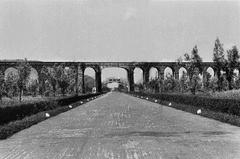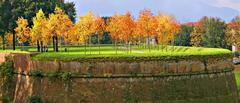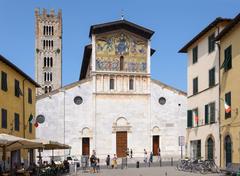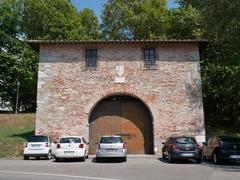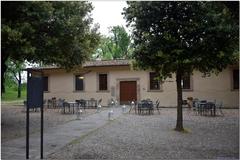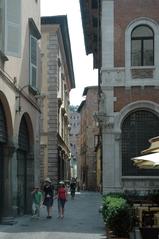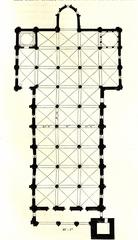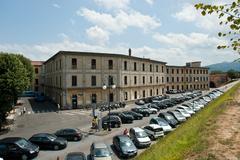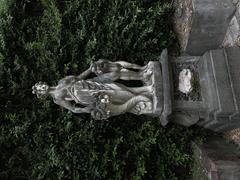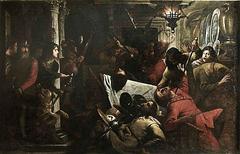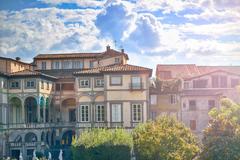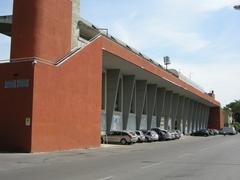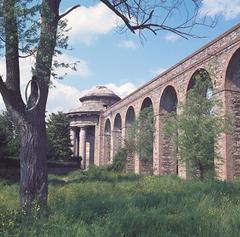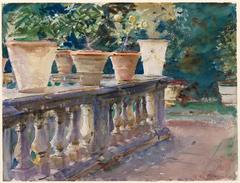Visiting Museo-casa natale di Giacomo Puccini: Hours, Tickets, and Tips
Date: 23/07/2024
Introduction
Nestled in the charming city of Lucca, Italy, the Museo-casa natale di Giacomo Puccini offers an intimate glimpse into the early life of one of the world’s most celebrated opera composers. Born on December 22, 1858, Giacomo Puccini is renowned for his operatic masterpieces such as “La Bohème,” “Tosca,” and “Madama Butterfly.” The museum is located in Puccini’s birthplace at Corte San Lorenzo, 9, a typical 19th-century Tuscan residence that reflects the modest yet culturally rich environment in which he was raised (Visiting Museo-casa natale di Giacomo Puccini).
The house, now a museum, was acquired and restored by the Fondazione Giacomo Puccini to preserve the composer’s legacy. It officially opened to the public in 1979, offering visitors a journey through Puccini’s formative years and his family’s long-standing musical tradition. The museum’s well-preserved architectural features, extensive collection of personal artifacts, and immersive exhibits make it a must-visit destination for opera enthusiasts and history buffs alike.
Table of Contents
- Introduction
- History of Museo-casa natale di Giacomo Puccini
- Architectural and Interior Details
- Exhibits and Collections
- Visiting Hours and Ticket Information
- Restoration and Preservation Efforts
- Educational and Cultural Programs
- Visitor Experience
- Accessibility and Visitor Information
- Nearby Attractions and Travel Tips
- Frequently Asked Questions (FAQ)
- Conclusion
History of Museo-casa natale di Giacomo Puccini
Early Life and Birthplace
Giacomo Puccini, one of the most celebrated opera composers of all time, was born on December 22, 1858, in Lucca, Italy. His birthplace, now known as the Museo-casa natale di Giacomo Puccini, is located at Corte San Lorenzo, 9. The house is a typical 19th-century Tuscan residence, reflecting the modest yet culturally rich environment in which Puccini was raised. The Puccini family had a long-standing musical tradition, with several generations serving as composers and musicians in the region. This familial legacy undoubtedly influenced Puccini’s early interest in music.
Transformation into a Museum
The house where Puccini was born remained in the family for several years before being sold. In the early 20th century, recognizing the cultural and historical significance of the site, efforts were made to preserve it. The house was eventually acquired by the Fondazione Giacomo Puccini, an organization dedicated to preserving the composer’s legacy. The foundation undertook extensive restoration work to return the house to its original state, ensuring that visitors could experience the environment as it was during Puccini’s childhood. The museum officially opened to the public in 1979.
Architectural and Interior Details
The Museo-casa natale di Giacomo Puccini is a quintessential example of 19th-century Tuscan architecture. The building features traditional elements such as terracotta floors, wooden beams, and plaster walls. The interior has been meticulously restored to reflect the period, with original furnishings and decor that belonged to the Puccini family. Visitors can explore various rooms, including the bedroom where Puccini was born, the living room, and the kitchen. Each room is adorned with personal artifacts, family portraits, and period-appropriate furnishings, providing a glimpse into the daily life of the Puccini family.
Exhibits and Collections
The museum houses an extensive collection of Puccini’s personal belongings, manuscripts, and memorabilia. Among the most notable exhibits are Puccini’s piano, on which he composed some of his early works, and original scores of his operas. The museum also features letters, photographs, and personal items that offer insights into Puccini’s life and career. One of the highlights is the display of costumes and set designs from various productions of Puccini’s operas, showcasing the enduring impact of his work on the world of opera.
Visiting Hours and Ticket Information
The Museo-casa natale di Giacomo Puccini is open year-round, with extended hours during the tourist season. Admission fees are modest, with discounts available for students, seniors, and groups. Tickets can be purchased on-site or online through the official Museo-casa natale di Giacomo Puccini website. Guided tours are available in multiple languages, providing detailed insights into the exhibits and the history of the Puccini family.
| Admission Fees | Price |
|---|---|
| Adults | €10 |
| Students & Seniors | €7 |
| Children under 12 | Free |
Visiting Hours:
- Monday to Friday: 10:00 AM - 6:00 PM
- Saturday and Sunday: 10:00 AM - 7:00 PM
Restoration and Preservation Efforts
Over the years, the Museo-casa natale di Giacomo Puccini has undergone several restoration projects to maintain its historical integrity. These efforts have been spearheaded by the Fondazione Giacomo Puccini, with support from local and international organizations. The restoration work has focused on preserving the original architectural features, as well as conserving the valuable artifacts housed within the museum. Advanced techniques in conservation science have been employed to ensure that the exhibits remain in pristine condition for future generations.
Educational and Cultural Programs
The museum is not only a place of historical interest but also a center for cultural and educational activities. It hosts a variety of programs, including guided tours, lectures, and workshops, aimed at promoting a deeper understanding of Puccini’s life and work. Special events, such as concerts and opera performances, are also held at the museum, providing visitors with an immersive cultural experience. These programs are designed to engage a diverse audience, from music students and scholars to casual visitors and opera aficionados.
Visitor Experience
Visitors to the Museo-casa natale di Giacomo Puccini can expect a comprehensive and enriching experience. Interactive displays and multimedia presentations enhance the visitor experience, making the history of Puccini’s life and work accessible to all. The museum also features a gift shop where visitors can purchase books, recordings, and souvenirs related to Puccini and his operas.
Accessibility and Visitor Information
The Museo-casa natale di Giacomo Puccini is located in the historic center of Lucca, making it easily accessible to visitors. The museum is wheelchair accessible, ensuring that all visitors can enjoy the exhibits. For those unable to visit in person, the museum offers virtual tours and online resources, allowing a global audience to explore the legacy of Giacomo Puccini.
Nearby Attractions and Travel Tips
While visiting the Museo-casa natale di Giacomo Puccini, take the opportunity to explore other historical sites in Lucca. The city is known for its well-preserved Renaissance walls, the stunning Lucca Cathedral, and the picturesque Piazza dell’Anfiteatro. Consider planning your visit during the Puccini Festival, held annually in nearby Torre del Lago, which celebrates the composer’s works with live performances.
Frequently Asked Questions (FAQ)
Q: What are the Museo-casa natale di Giacomo Puccini visiting hours?
A: The museum is open year-round, with extended hours during the tourist season. Check the official website for the most up-to-date information.
Q: How much are the Museo-casa natale di Giacomo Puccini tickets?
A: Admission fees are modest, with discounts available for students, seniors, and groups. Tickets can be purchased on-site or online.
Q: Is the Museo-casa natale di Giacomo Puccini wheelchair accessible?
A: Yes, the museum is wheelchair accessible, ensuring that all visitors can enjoy the exhibits.
Q: Are guided tours available?
A: Yes, guided tours are available in multiple languages, providing detailed insights into the exhibits and the history of the Puccini family.
Conclusion
A visit to the Museo-casa natale di Giacomo Puccini is a must for opera enthusiasts and history buffs alike. Immerse yourself in the rich cultural heritage of Lucca and gain a deeper understanding of the genius behind some of the world’s most beloved operas. For more information, visit the official Museo-casa natale di Giacomo Puccini website and follow their social media channels for updates on events and exhibitions.
